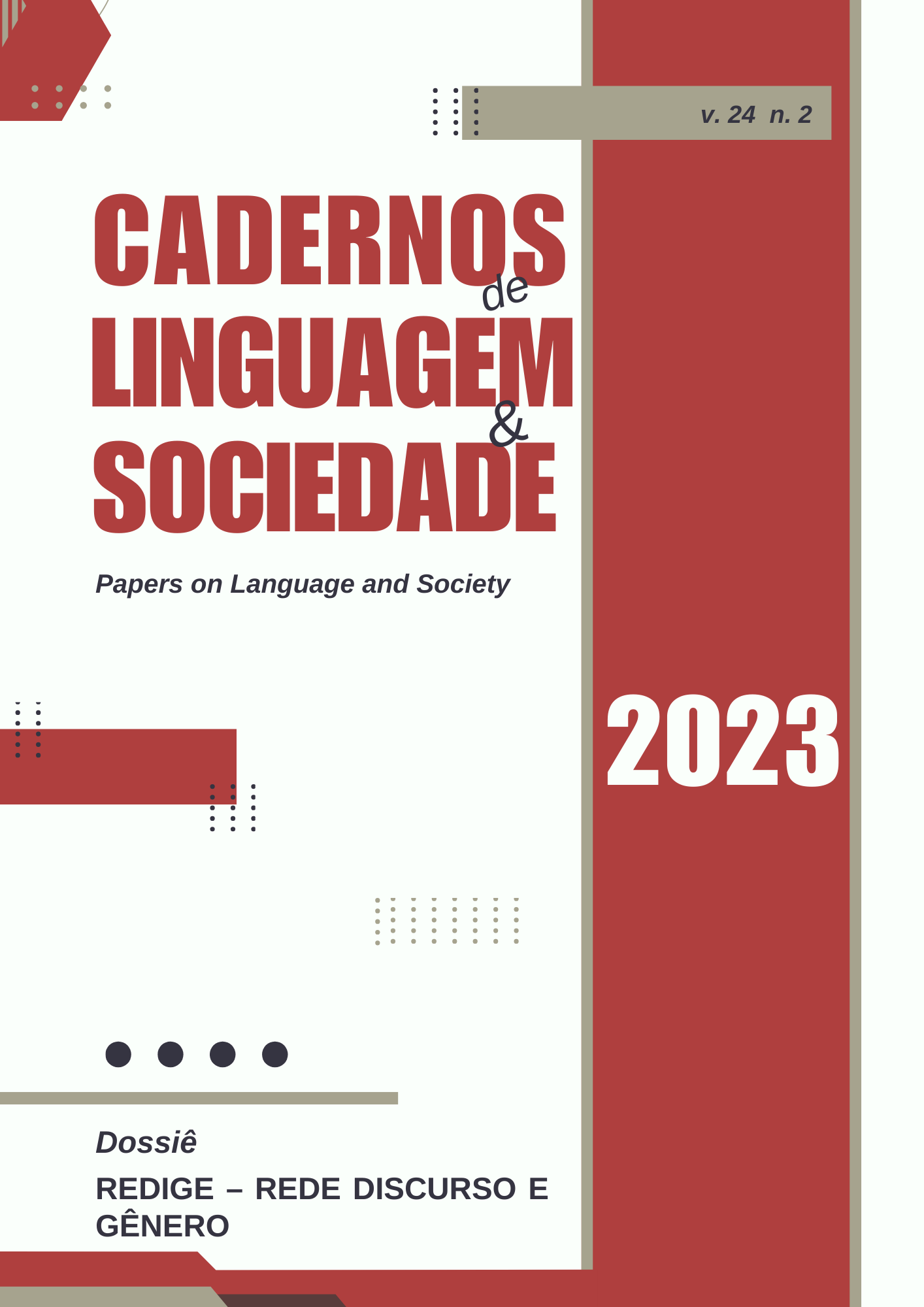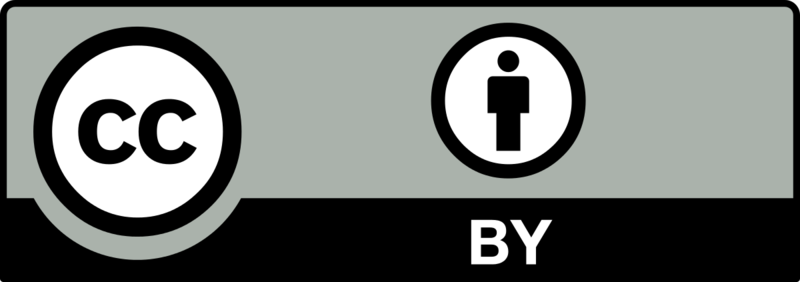PEDAGOGICAL REFLECTIONS ON THE COLONIZED PERCEPTIONS OF PORTUGUESE
DOI:
https://doi.org/10.26512/les.v24i2.46912Keywords:
Intercultarality, Sociolinguistics, Didactics of LanguagesAbstract
The article analyzes the learning of Portuguese associated with the dynamics of interculturality, not only from a linguistic perspective, but from the perceptions of the language presented in a sociolinguistic study (2016-2019), on the evolution of representations associated with the language, which sought not only to identify what the students thought, but also to understand how these perceptions could interfere in the learning process, to consider a methodological adaptation in praxis. The effects of the so-called historical past on learning have been examined, thus contributing to the debate on the historical relationship between colonialism and language
Downloads
References
BAJTÍN, M. J. La estética de creación verbal. México: Siglo XXI, 1982.
BEARE, K. Teaching English to absolute and false beginners. ThoughtCo, 27 dic. 2020, 2016. Recuperado de: http://esl.about.com/od/esleflteachingtechnique/a/t_afbeginners.htm.
BOLÍVAR BOTÍA, A.; DOMINGO, J.; FERNÁNDEZ, M. La investigación biográfico-narrativa en educación: Enfoque y metodología. Madrid: La Muralla, 2001.
CAMBRA, M. Une approche ethnographique de la classe de langue. París: Didier, 2003. (Collection L.A.L.)
CARRASCO PEREA, E. Introduction. In: CARRASCO PEREA, E. (coord.). Intercompréhension(s): repères, interrogations et perspectives. Synergies Europe, 2010. V. 5, p. 7–12. Disponível em: http://ressources-cla.univ-fcomte.fr/gerflint/Europe5/ introduction.pdf
ENGESTRÖM, Y. Activity theory and individual and social transformation. En ENGESTRÖM, Y.; MIETTINEN, R.; PUNAMÄKI, R. Perspectives on activity theory. Nueva York: Cambridge University Press, 1999a. p. 19-38.
ENGESTRÖM, Y. Expansive visibilization of work: an activity theoretical perspective. En Computer Supported Cooperative Work, 1999b. p.63-93, v. 8.
HELGESEN, M. False beginners: activating language for accuracy and fluency. The Language Teacher, v. 11, n. 14, p. 23-29, 1987.
JIN, L.; CORTAZZI, M. La cultura que aporta el alumno: ¿puente u obstáculo? En BYRAM M.; FLEMING, M. Perspectivas interculturales en el aprendizaje de idiomas. Enfoques a través del teatro y la etnografía. Madrid: Cambridge University Press, 2001. p. 104-125.
JODELET, D. La representación social: fenómenos, concepto y teoría. In: MOSCOVICI, S. Psicologia social II. Barcelona: Paidós, 1984. p.469-493.
KALAJA, P. A review of five studies on learner beliefs about Second Language Learning and Teaching: Exploring the possibilities of narratives. In: JAKONEN, T.; JALKANEN, J.; PAAKKINEN, T.; SUNI, M. (ed.). Kielen oppimisen virtauksia. Flows of language learning. Jyväskylä: AFinLA, 2015. p. 21-38.
KALAJA, P. Student teachers’ beliefs about L1 and L2 discursively constructed: A longitudinal study of interpretative repertoires. En KALAJA, P.; BARCELOS, A. M. F.; ARO, M.; RUOHOTIE-LYHTY, M. (ed.). Beliefs, agency and identity in foreign language learning and teaching. Basingstoke: Palgrave Macmillan, 2016. p. 97-123.
KALAJA, P.; DUFVA, H.; ALANEN, R. Experimenting with visual narratives. En BARKHUIZEN, A. G. (ed.). Narratives in Applied Linguistics. Cambridge: Cambridge University Press, 2013. p. 1-26.
KERBRAT-ORECCHIONI, C. Les Interactions Verbale, 1. París: Armand Colin, 1990.
KERBRAT-ORECCHIONI, C. Les Interactions Verbales, 2. París: Armand Colin, 1992.
KERBRAT-ORECCHIONI, C. Analyse du discourse en interaction. París: Armand Collin, 2005.
LURIA, A. R. Higher cognitive functions in man. Nueva York: Plenum Press, 1980.
MARTÍN PERIS, E. Características de una programación comunicativa y su repercusión en el aula. In: Jornadas Internacionales de Didáctica de ELE. Madrid: Ministerio de Cultura, 1987. p. 39-58.
MARTÍN PERIS, E. La enseñanza de idiomas modernos: de los contenidos a los procesos. En Cable, 1988. p. 16-21, v. 1.
MARTÍN PERIS, E. El perfil del profesor de español como lengua extranjera: necesidades y tendencias. In: MIQUEL, L.; SANS, N. (coord.). Didáctica de E/LE 1. Actas del Congreso Expolingua. Madrid: Fundación Actilibre, 1993. p. 167-180
MARTÍN PERIS, E. El profesor de lenguas: papel y funciones. In: MENDOZA FILLOLA, A. (ed.). Conceptos clave en didáctica de la lengua y la literatura. Barcelona: SEDLL/ICE/HORSORI, p. 87-100. 1998.
MARTÍN PERIS, E. ¿Qué significa trabajar en clase con tareas comunicativas? En RedELE, 2004. Recuperado de: http://www.sgci.mec.es/redele/revista/martin.htm.
MARTIN PERIS, E. et al. (2002). Diccionario de términos clave de ELE. Madrid: Ministerio de Educación, Cultura y Deportes.
PAVLENKO, A. Autobiographic Narratives as Data in Applied Linguistics. Applied Linguistics, v. 2, n. 28, p.163-188, 2007.
PEATY, D. False beginners: who are they and what to do with them. The Language Teacher, v. 11, n. 14, p. 4-5, 1987.
PEREIRA, M. E. Psicologia social dos estereotipos. São Paulo: E P. U., 2002.
PÉREZ SERRANO, G. Investigación cualitativa. Retos e interrogantes. I. Métodos. Madrid: Editorial La Muralla, 1994.
SWAN, M. False beginners. In: JOHNSON, K.; MORROW, K. (ed.). Communication in the classroom. London: Longman, 1981.
VICENTE DA SILVA MATOS, D. C.; RODRIGUES BOTELHO, G. “Isso vai dar samba: a perspectiva afrogênica e decolonial pela linguística aplicada”. Cadernos De Linguagem E Sociedade, v. 21, n. 1, p. 120–137, 2020. DOI: https://doi.org/10.26512/les.v20i3.28457
VYGOTSKY, L. S. Mind in society: The development of higher psychological processes. Cambridge: Mass Harvard University Press, 1978.
VYGOTSKY, L. S. Pensamiento y Lenguaje. En Obras escogidas II. Moscú: Editorial Pedagógica, 1982.
WALSH, C. Interculturalidad, Estado, Sociedad. Luchas (de)coloniales de nuestra época. Quito: Universidad Andina Simón Bolívar / Abya-Yala, 2010.
WERTSCH, J. Voices of the mind: A Sociocultural approach to mediated action. Cambridge, MA: Harvard University Press, 1991.
Downloads
Published
How to Cite
Issue
Section
License
Copyright (c) 2023 Cadernos de Linguagem e Sociedade do Programa de Pós-Graduação em Linguística da UnB é licenciado sob uma Licença Creative Commons Atribuição-Uso não-comercial-Vedada a criação de obras derivadas 3.0 Unported.

This work is licensed under a Creative Commons Attribution 4.0 International License.



